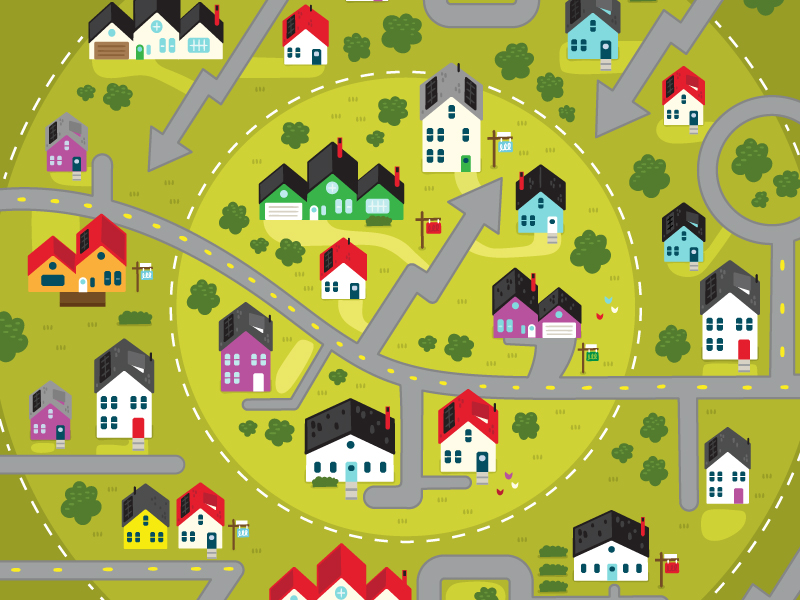Location, location, location” may be the mantra when choosing the right home, but new research from the University of Georgia finds it also might be key when choosing the right real estate agent.
In a recent paper in Real Estate Economics, real estate economist Darren Hayunga showed having an agent familiar with your neighborhood is more important than all other factors in increasing a home’s sale price.
Hayunga, an associate professor in the Real Estate Program at the Terry College of Business, and former Terry doctoral student Lu Fang, now an assistant professor of real estate at Florida International University, published their paper, “The impact of real estate agents’ expertise on house prices and time on market,” in December.
Hayunga was inspired to take on the project after leaving Dallas for Athens in 2013. He knew a great real estate agent who sold investment properties Hayunga owned on the south side of the sprawling 9,000-square-mile Dallas metroplex. However, when he listed his west side house with her before his move, he did not receive an offer, despite many showings.
Hayunga and Fang wanted to find out what made for a successful agent — was it something about their connections, experience, or just the luck of the market?
To discover what agent qualities yielded the highest prices and quickest sales for sellers, they analyzed 10 years of Multiple Listing Services (MLS) transaction data from the Dallas metro area. The data set, spanning from 2003 to 2013, covered the last precipitous housing boom, the mortgage crisis bust that followed and part of the market’s recovery.
The team sorted 324,344 residential sales made by more than 12,000 Dallas agents by their experience and sales volumes, but neither seemed to impact prices.
Where Fang and Hayunga did find impact were the locations of an agent’s listings. The smaller the geographic concentration of an agent’s sales, the more likely sellers saw a premium on the final price. Additionally, the closer a client’s home was to their agent’s market concentration, the higher the selling price.
“The one thing that’s clearly important, even in our first models, is the local market concentration,” Hayunga says. “In a place like Dallas-Fort Worth or Atlanta, it’s very spread out. You could be an agent who serves a large area, or you could just go wherever you can find a client. It’s better to be focused in one area.”
The study found agents with a high concentration of listings in one area and assumed knowledge about that micro-market saw an increase in home price of about 2% for every unit of standard deviation below the average distance between listings. For instance, owners experienced a mean increase of $2,050 when their homes were 2.7 miles from their agents’ local markets compared to a separation distance of 6.2 miles.
Further, when Fang and Hayunga looked at the spread of agents’ market concentrations, they found an additional price benefit. For example, a contraction in agents’ market radii from 8.0 to 5.1 miles increased the mean sales price by another $2,000.
This neighborhood knowledge premium endured in depressed market conditions and regardless of whether the home was a starter or larger luxury property, Hayunga says.
Homebuyers employing agents with deeper local knowledge to find a new house also paid a premium, but only about 1.5% — or about $2,500 — more than people with more generalist agents.
That may be a price people are willing to pay because using an agent who knows the area well will reduce the time it takes to search for the right house, Hayunga says.
“Knowledgeable agents can reduce the external costs of obtaining relevant market information,” Hayunga says. “They know subtle things like, ‘This is a low-crime area’ or ‘This is an area with lots of young families where the kids play outside.’ So they can get you to that right home quickly. They can also decrease the cognitive or internal costs of engaging in direct search — the energy spent sorting incoming information and putting it in context.”
Whether buying or selling, the knowledge a local expert brings to the process is valuable, he says.
“If you’re a seller especially, you should look for someone local who understands your submarket and knows what to do in your neighborhood,” he says. “You don’t have to get it down to the subdivision, but someone who knows your neighborhood will definitely be helpful.”

